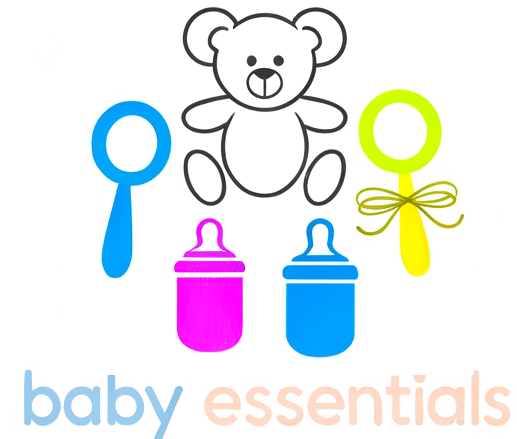The first year of a baby’s life presents numerous health challenges that can cause significant anxiety for new parents. Understanding common baby illnesses, including the most prevalent common baby illnesses and recognising when professional medical intervention is necessary is critical for ensuring optimal child health outcomes. Most babies, toddlers, and children will experience common childhood illnesses, including common baby illnesses such as chickenpox, colds, sore throats, and ear infections during their early years. Because babies can’t communicate symptoms well, parental observation is essential. Infants under three months of age require immediate medical evaluation for any signs of common baby illnesses due to their underdeveloped immune systems and higher risk of serious complications.
Healthcare providers emphasise that while many common childhood illnesses can be managed at home with supportive care, understanding the warning signs of serious illness can be life-saving for vulnerable infants.
Being aware of common baby illnesses can help parents take timely action when needed.
Most Common Respiratory Illnesses in Infants
Respiratory infections are the most frequent illnesses affecting babies in their first year. Upper respiratory infections (like colds) are especially common, with symptoms such as:
- Runny nose
- Sneezing
- Congestion
- Cough
- Increased fussiness
These usually require supportive care, such as nasal saline irrigation, cool mist humidification, and rest. The challenge is distinguishing between a simple cold and more serious respiratory problems.
Respiratory Syncytial Virus (RSV) and bronchiolitis are more serious. RSV is the leading cause of bronchiolitis and pneumonia in U.S. infants. Symptoms include:
- Fever
- Runny nose
- Persistent cough
- Wheezing (in up to 40% of first-time RSV cases)
- About 2% of affected children may require hospitalisation
Common baby illnesses like Respiratory Syncytial Virus (RSV) require careful monitoring to ensure the well-being of infants at risk.
Premature babies and those with lung or heart conditions are at higher risk.
Croup is another respiratory illness, recognised by a tight, barking cough (often at night). Seek immediate medical attention if your baby:
- Has difficulty breathing
- Is breathing faster or harder than normal
- Shows blue or dusky lips, face, or tongue
- Is under three months and has been coughing for more than a few hours
- Makes a “whooping” sound when breathing in after coughing
Digestive System Disorders and Symptoms
Gastrointestinal issues are common and range from mild to serious. The most frequent symptoms are:
Parents should be vigilant about common baby illnesses, especially those that can lead to severe complications.
- Vomiting
- Diarrhea
Most cases are caused by viruses. Supportive care includes adequate fluids and, sometimes, probiotics. The main concern is dehydration, which can develop quickly in infants.
Signs of dehydration in newborns:
- Sunken soft spot on the head
- Excessive sleepiness
- Sunken eyes
- Crying with little or no tears
- Fussiness
- Cold or discoloured hands and feet
- Wrinkled skin
Signs in older babies/toddlers:
- Less playful or more tired/cranky
- No wet diapers for 6+ hours
- Sunken eyes
- No tears when crying
- Dry mouth
- Constipation
- Fast breathing or heart rate
When to call a doctor:
- If your baby misses two or more feedings
- If vomiting is forceful (not just spitting up)
- If symptoms of dehydration appear
After vomiting, wait 30–60 minutes before offering clear fluids. For babies under one year, use oral rehydration solutions, breast milk, or formula (avoid fruit juices and sugary drinks).
Skin Conditions and Rashes
Nappy / Diaper rash is very common. There are two main types:
- Nappy / Diaper irritant dermatitis: Red or pink patches from contact with urine/stool. Treat with frequent diaper changes, hypoallergenic wipes, and thick zinc oxide cream.
- Nappy / Diaper candidiasis: Fungal infection causing small pink or red bumps, especially in skin folds. Requires antifungal ointment from your doctor.
Common baby illnesses can lead to dehydration, making it essential for parents to monitor their infant’s symptoms closely.
Seek medical attention if:
- The rash is severe, persistent, or accompanied by fever
- The rash looks like small bruises or bleeding under the skin and does not fade when pressed (could signal a serious condition like meningitis)
- There is sudden swelling of the lips, mouth, throat, or tongue (possible allergy)
Fever Management and Assessment
Fever is a common reason for concern. For infants under three months, any rectal temperature of 100.4°F (38°C) or higher requires immediate medical attention.
Recognising the signs of dehydration is crucial, especially in cases of common baby illnesses.
For babies three months or older:
- Call your doctor if the temperature exceeds 102.2°F (39°C), or if your baby looks unwell, is weak, irritable, dehydrated, or has trouble breathing.
- If your child is alert, drinking fluids, and looks well when the fever drops, it is probably not serious.
Warning signs:
- High fever with cold hands/feet
- Fever not responding to medication
- The child appears listless or unusually quiet
Age-Specific Medical Consultation Guidelines
- Under 3 months: Any illness or fever, call your doctor immediately.
- 3–6 months: Call if the temperature reaches 100.4°F (38°C) and the baby looks unwell, or if the temperature is higher.
- 6–24 months: Call if fever exceeds 100.4°F (38°C) and lasts more than one day, or if other symptoms (sore throat, earache, rash, pain with urination) appear.
Always trust your instincts and contact your healthcare provider if you are concerned, regardless of symptoms.
Emergency Warning Signs: When to Seek Immediate Care
Call 999 / 911 or go to the emergency department if your baby:
Awareness of common baby illnesses helps in preventing complications that can arise from untreated symptoms.
- Cries inconsolably or is extremely irritable
- Is difficult to wake or seems confused/disoriented
- Has persistent trouble breathing, grunting, or blue lips/tongue
- Has a seizure
- Has a bulging or sunken soft spot on the head
- Has skin that is blue, pale, blotchy, or ashen
- Is limp or refuses to move
- Has severe abdominal pain
Do not delay emergency care if these signs are present.
Conclusion
Most common baby illnesses can be managed at home, but certain symptoms and age groups require immediate medical attention. Trust your instincts and seek help when needed. Building a relationship with your healthcare provider and practising good hygiene can help keep your baby healthy.
Sources
- List of common childhood illnesses and emergency signs:
- nidirect – Childhood illnesses
- Guidance on when to call the doctor and emergency situations:
- Sutter Health – When to Call the Doctor
- Symptoms, infection types, and home care tips:
- Caring for Kids – Common infections and your child
- Infant care and health research background:
- NICHD – Infant Care and Infant Health
- Risks for premature babies and common infectious illnesses:
- Bliss – What are the most common infectious illnesses?
- When to call the doctor and warning signs:
- St. Louis Children’s Hospital – A Parent’s Guide to Calling The Doctor
- Serious illness warning signs and when to seek help:
- NHS – Is your baby or toddler seriously ill?
- Minor ailments, diarrhoea, vomiting, and home care:
- Health for Under 5s – Minor ailments and illnesses

